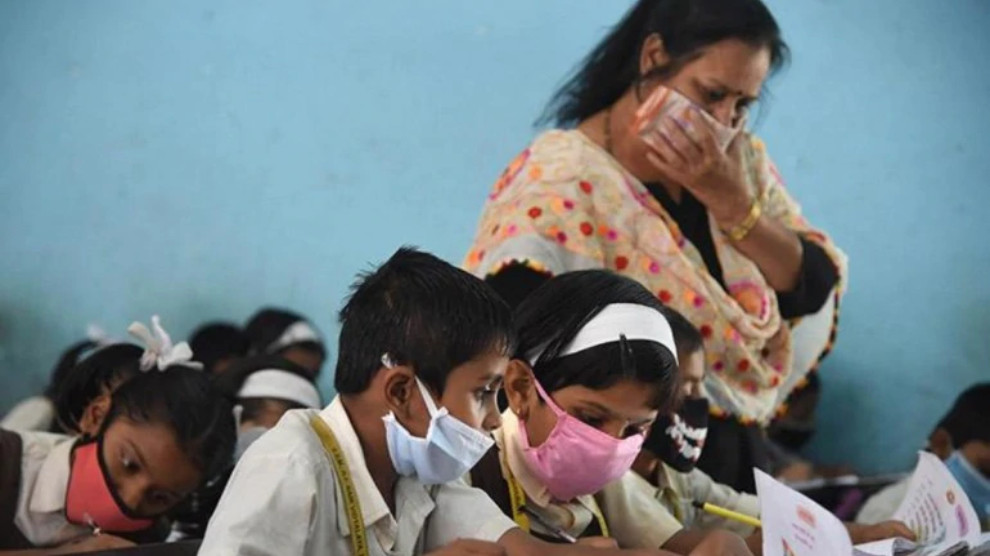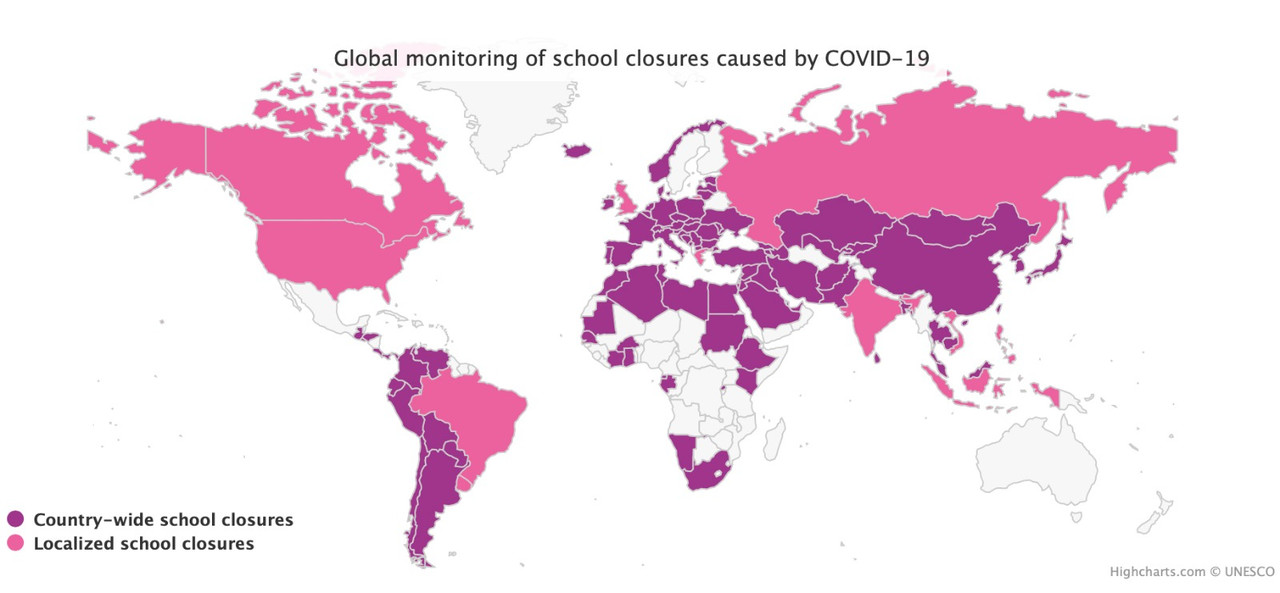Over 850 million students away from schools due to COVID-19
The adverse impacts of school closures are difficult to overstate and many them extend beyond the education sector, says UNESCO.
The adverse impacts of school closures are difficult to overstate and many them extend beyond the education sector, says UNESCO.

As of late Tuesday, over 850 million children and youth – roughly half of the world’s student population – had to stay away from schools and universities due to the COVID-19 pandemic, UNESCO announced today.
Accordingly, nationwide closures are in force in 102 countries and local shut-downs in 11 others. This represents more than a doubling in the number of learners prevented from attending educational institutions, with further increases expected.
The statement by UNESCO said that;
“The scale and speed of the school and university closures represents an unprecedented challenge for the education sector. Countries around the world are racing to fill the void with distance learning solutions but the uncertain duration of the closures adds further complication to their efforts. These range from hi-tech alternatives like real-time video classes conducted remotely to lower-tech options such as educational programming on radio and television.”
As an immediate response to massive school closures, UNESCO has established a COVID-19 task force to provide advice and technical assistance to governments working to provision education to students out of school. The Organization is also holding regular virtual meetings with education ministers from all over the world to share experiences and assess priority needs.
UNESCO is also launching a Global COVID-19 Education Coalition that brings together multilateral partners and the private sector, including Microsoft and the Global System for Mobile Communications (GSMA), to help countries deploy remote learning systems so as to minimize educational disruptions and maintain social contact with learners.
“The current situation imposes immense challenges for countries to be able to provide uninterrupted learning for all children and youth in an equitable manner. We are stepping up on our global response by creating a coalition to ensure a fast and coordinated response. Beyond meeting immediate needs, this effort is an opportunity to rethink education, scale-up distance learning and make education systems more resilient, open and innovative,” says UNESCO Director-General Audrey Azoulay.
“Difficulties rise exponentially when school closures are prolonged,” said Stefania Giannini, UNECO’s Assistant Director-General for Education. “Schools, however imperfectly, play an equalizing role in society and when they close, inequalities become far greater.”
UNESCO will further host regular webinars and virtual meetings to allow country representatives opportunities to share information on the effectiveness of approaches used in different contexts, building on the success of its ministerial videoconference of 10 March that brought together 73 countries.
